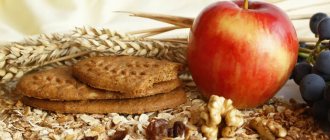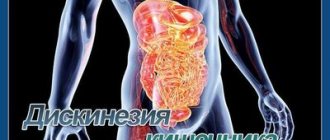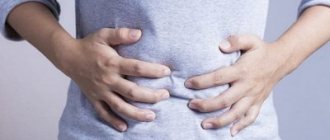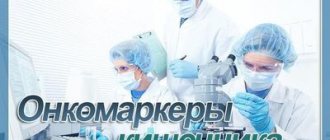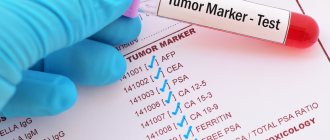Any failure of the digestive system can lead to the development of serious diseases of other organs. At the same time, immunity decreases and the general condition of the body worsens. That is why, to get rid of a wide variety of diseases, many experts recommend immediately changing your eating habits and following a diet.
The condition of the digestive tract itself directly depends on intestinal motility. Any of its violations, called dyskinesia, lead to unpleasant consequences, which will be described in detail below. At the same time, they can be easily eliminated, thereby restoring the normal functioning of the digestive system.
What is intestinal peristalsis?
A healthy intestine in a normal state contracts all the time, this happens systematically. Thanks to the rhythmic contractions of the intestinal walls, food masses move freely from the small intestine to the large intestine. This promotes the normal absorption of nutrients that enter the body with food and the elimination of waste products naturally.
Normal contraction motility is possible due to the presence of smooth muscle fibers on the intestinal walls. They are located in several layers, some longitudinally, others transversely. Due to systematic contractions, waves of different intensities are created. In different parts of the intestine, the speed of movement of food masses differs.
Normally, the number of contractions per minute is 10 times in the duodenum, 9–12 in the small intestine, and 3–4 in the large intestine.
Intestinal peristalsis functions not only after eating, but also constantly, even at night. Several times a day, rapid contractions occur that push the contents of the intestines towards the anus. The first alarming sign of impaired peristalsis is often problems with stool, especially constipation, when motility does not reach the desired speed and waste products do not reach the rectum.
Reasons for violations
The causes of peristalsis disorders, like many other diseases of the gastrointestinal tract, can be various factors. Some of them arise due to human fault and are associated with poor diet, lifestyle, and other mistakes. These include:
- bad eating habits, such as eating fatty foods, lack of a meal plan, poor diet;
- smoking, excessive alcohol consumption - tobacco smoke and ethanol negatively affect the condition of all gastrointestinal organs, including the intestines;
- lack of physical activity, sedentary lifestyle;
- frequent stress - intestinal function is regulated by the central nervous system, when a person lives in constant nervous tension, gastrointestinal diseases occur;
- improper or uncontrolled use of antibiotics, hormonal and other potent drugs.
In infants, poor peristalsis may be due to the mother's poor diet.
Other causes of peristalsis disorders are:
- age-related changes in the body, especially the fact that older people find it difficult to chew food thoroughly;
- hereditary predisposition to intestinal diseases;
- complications after surgical intervention in the abdominal organs;
- infectious intestinal diseases;
- chronic diseases of the stomach, gall bladder, and other gastrointestinal organs;
- benign and malignant neoplasms in the intestine.
Doctors highlight poor nutrition as one of the main causes. Due to the pace of life, many people do not have time to cook healthy food and eat right. The situation is complicated by the fact that many young people lead a sedentary lifestyle. If earlier peristalsis disorders were more common in people over the age of 45–50 years, today they are diagnosed in an increasing number of young people.
Reasons for slower peristalsis
If bowel dysfunction occurs, surgery may be required.
Malfunctions in the intestines have their own causes. In order to completely normalize the situation, the doctor will first of all identify the reason that provoked the deterioration in well-being. In most cases there are several reasons:
- eating large amounts of high-calorie foods;
- chronic intestinal diseases;
- tumors (malignant, benign);
- surgical intervention;
- insufficient physical activity;
- taking medications that inhibit bowel function;
- old age;
- genetic predisposition.
Even with proper treatment of the underlying disease, it is impossible to regulate the functioning of the intestines without a balanced diet. Flour products, dishes containing a lot of starch, and fats have a negative effect. Sugar is a product that enhances putrefactive processes in the digestive tract.
When peristalsis slows down, toxins are formed in large quantities and enter other organs through the intestinal walls. In the intestine itself, the chyme that is not released hardens over time, and “fecal stones” are obtained. In order for them to come out naturally, the functionality of this organ must be completely restored.
It's quite difficult to push them out. After all, they are very dense and heavy. If they pass through the intestinal passages, the walls are destroyed, as a result of which dangerous diseases develop. Among them are cracks. Stagnation of blood in this organ leads to the appearance of polyps and hemorrhoids. Elderly patients have their own sequence of pathology development. Their hormonal levels change, muscle fibers become weaker and sluggish. And all existing chronic diseases progress.
Increased and weakened peristalsis
Increased intestinal motility occurs when contraction of the intestinal walls occurs too often. As a result, food does not have time to be completely digested, and beneficial microelements obtained from food do not have time to be completely digested. Because of this, food masses enter the anus with difficulty, which causes constipation. And there is also a deficiency of many useful substances.
Weakened intestinal motility is an equally serious disorder in which the number of contractions of the intestinal walls occurs less frequently than normal. As a result of insufficient rhythm, food lingers in the intestines longer than necessary. The consequences are the same as in the case of increased peristalsis: constipation and other disturbances in the gastrointestinal tract appear.
The causes of all types of violations may be the same factors. Both increased and weakened peristalsis leads to complications, disruptions in the digestion of food and the absorption of beneficial microelements.
We supplement proper nutrition with physical activity
If you lead a sedentary lifestyle, you urgently need to increase physical activity. Start with light exercises in the morning, gradually introducing exercises such as “bicycle”, lifting and spreading your legs to the sides from a supine position. They increase muscle tone and have a beneficial effect on the entire digestive system.
Jogging, which can renew the body in a very short time, cycling or training on special exercise equipment, can also improve the functioning of the gastrointestinal tract. Remember that physical activity is one of the prerequisites for accelerating peristalsis. If you cannot exercise due to a simple lack of time, try to walk as much as possible.
Symptoms of disorders
Symptoms of peristalsis disorders are similar to those of many other gastrointestinal diseases. It is possible to recognize the disease in them only with the help of comprehensive diagnostics. A characteristic symptom is acute pain, the intensity of which can vary. It can appear after meals or independently of them, lasting half an hour or a day.
Often, painful sensations due to impaired peristalsis subside after defecation and resume after the next meal.
There are other characteristic symptoms besides acute pain, these include:
- constipation, painful sensations during bowel movements;
- feeling of heaviness in the lower abdomen, discomfort;
- bloating, flatulence;
- decreased appetite;
- sudden weight gain;
- deterioration of the skin condition;
- lethargy, loss of strength, deterioration of general condition;
- bad breath.
Constipation is characteristic of weakened intestinal motility; with increased intestinal motility, diarrhea is more common.
The intensity of symptoms largely depends on the cause of disruptions in the motility of contractions of the intestinal walls. If they are associated with poor diet and bad habits, then a person can ignore symptoms that are mild over the years. If the cause is an infectious lesion, then the signs of the disorder develop intensively.
Intestinal diagnostics
To improve intestinal motility, it is necessary to undergo a comprehensive diagnosis to assess the condition of its walls and other organs of the digestive system. Before prescribing treatment, the doctor must identify the cause. This will help him understand whether the disorder is a complication of infection or other gastrointestinal diseases, and whether the root cause needs to be eliminated, or whether it is enough to take measures to improve nutrition.
Diagnostics may include the following laboratory and instrumental research methods:
- general analysis of blood, urine, feces;
- Ultrasound of the intestines and abdominal organs, pelvis;
- endoscopy;
- colonoscopy.
If the presence of neoplasms is suspected, a CT or MRI is prescribed. Before prescribing these and other studies, the doctor performs palpation, during which it is already possible to recognize symptoms of disorders such as bloating and acute pain.
Earthworms
A simplified image showing the movement of an earthworm through peristalsis.
An earthworm without limbs is an annelid worm with a hydrostatic frame that moves by peristalsis. Its hydrostatic frame consists of a fluid-filled body cavity surrounded by an extensible body wall. The worm moves by radially narrowing the front of its body, which results in an increase in length due to hydrostatic pressure. This narrowed area extends posteriorly along the body of the worm. As a result, each segment is pulled forward, then relaxes and re-contacts the substrate, producing a hair-like appearance. bristles prevent slipping back. [6] Various other invertebrates, such as caterpillars and millipedes, also move by peristalsis.
How to improve intestinal motility
In most cases, improvement of intestinal motility is required, because increased peristalsis is rare. It is necessary to select medications that increase the number of wall contractions per minute. And we also need medications that help normalize digestive processes.
Intestinal motility can only be improved through complex therapy, which, in addition to the use of medications, includes following a diet. If necessary, folk remedies and therapeutic exercises are also used.
Drugs
Drug therapy includes drugs that improve peristalsis, as well as means to strengthen the functioning of the digestive tract as a whole. Usually two groups of drugs are prescribed:
- laxatives;
- drugs that increase muscle tone.
Laxatives are also divided into two groups, depending on which part of the intestine they affect:
- for the small intestine;
- for the large intestine.
The following drugs are considered the most effective and safe:
- Itopride. Available in tablet form, suitable for the treatment of adults. You need to take 1 tablet per day.
- Tegaserod. Available in tablet form, the application regimen is the same as Itopride. Tegaserod not only helps normalize intestinal motility, but also improves the production and absorption of enzymes.
- Mucofalk. Available in powder form, it has a plant base. The contents of the sachet are dissolved in a glass of water; it is recommended to take 1–2 sachets per day.
- Dufalak. Available in syrup form, it is suitable for treating children and adults; the dosage is selected individually by the doctor. The drug has a synthetic base and is not absorbed in the intestines.
Given the variety of effective drugs, they are prescribed strictly by the attending physician; they are especially carefully selected for pregnant women and children.
Diet
It is impossible to enhance peristalsis without following a diet; it is an important part of treatment. The basic principles are the following:
- eat small portions at the same time, 4–5 times a day;
- avoid both overeating and fasting;
- do not eat heavy food at night;
- give up fatty, fried, smoked and other unhealthy foods;
- give up alcohol, carbonated drinks, coffee.
Nutritionists highlight monotonous diets for weight loss, which involve eating only one product, as especially dangerous for worsening intestinal motility.
In addition to eliminating harmful foods from the diet, it is important to add those that have a beneficial effect on peristalsis. They should be present in the daily menu, these include:
- dried fruits;
- dairy products;
- fresh vegetables, fruits and juices from them;
- nuts, flax seeds;
- porridge, except semolina and rice.
During the day you need to drink at least 2 liters of clean water. And it is also recommended to exclude flour, sweets, potatoes, and black tea from the diet. These products slow down peristalsis, and if it is already impaired, they can cause constipation.
Important! Proper nutrition must be supplemented with physical activity, especially if you have a sedentary job, because lack of physical activity is one of the causes of gastrointestinal diseases.
Folk remedies
Folk remedies are used in addition to basic drug therapy. Before you start using them, you must make sure that there is no allergic reaction to the components included in the composition.
How to normalize the intestines
The following recipes are popular:
- Dried fruits with propolis. Take 100 g of prunes, dried apricots, honey, dried senna, 40 g of propolis. Chop everything and mix. The resulting mixture is consumed before bed, 1 tsp, washed down with water.
- Buckthorn bark. This substance has a laxative effect and has a beneficial effect on the gastrointestinal tract as a whole; you can purchase crushed bark in pharmacies. Take 1 tbsp. l. bark, add 0.5 liters of water, bring to a boil, then simmer over low heat for 10–15 minutes. Turn it off, let it brew, strain. The resulting portion must be drunk 2 times - morning and evening.
- "Salad Brush" Its regular use guarantees the improvement of intestinal function; it is advisable to eat it for breakfast. To prepare, take equal quantities of potatoes, carrots, beets, and cabbage. We grate all raw vegetables and season with olive oil. One serving of salad – 200–300 g.
For constipation, which is characteristic of peristalsis disorders, self-massage is used; to master its technique, you can contact a therapist or gastroenterologist.
Herbal infusions, which have a beneficial effect on the intestines and all organs of the gastrointestinal tract, will also help to establish peristalsis. You can purchase a ready-made mixture at a pharmacy or prepare it yourself. Herbs such as chamomile, nettle, yarrow, buckthorn, wormwood, and flax are considered beneficial.
References
- “The earthworm is a muscular system.” [ self-published source
] - "Internet etymological dictionary". etymonline.com
. Received 2016-06-30. - ^ a b c
Marieb, Elaine N. and Hoen, Katya "Human Anatomy and Physiology", 8th ed., Benjamin Cummings/Pearson, 2010[
page needed
] - Mittal, Ravinder K. (2011). Motor patterns of the esophagus - aboral and oral transport
. Morgan and Claypool Life Sciences. - William O. Rees (March 21, 2013). Functional Anatomy and Physiology of Domestic Animals
. John Wiley and Sons. P. 451–. ISBN 978-1-118-68589-1. - Quillin K.J. (May 1998). "Ontogenetic scaling of hydrostatic skeletons: geometric, static and dynamic stress scaling in the earthworm lumbricus terrestris". Journal of Experimental Biology
.
201
(12):1871–83. PMID 9600869. - Sangok Seok, CD Onal; and others. (05/07/2010). "Peristaltic locomotion with antagonistic actuators in soft robotics" (PDF). Massachusetts Institute of Technology. Retrieved 2014-11-20.
- Alexander Boxerbaum (05/10/2010). "A new form of peristaltic locomotion in a robot." YouTube. Retrieved 2014-11-20.
Prevention
Frequently, peristalsis disorders can be prevented by monitoring nutrition and following other recommendations of gastroenterologists. The main ones are:
- adhere to the principles of proper nutrition, refuse junk food;
- give up bad habits, although the opinion of doctors about the benefits of alcohol is ambiguous, if you have problems with the intestines, it is better to give it up completely;
- do not overeat, eat in small portions;
- do not eat 2-3 hours before bedtime, dinner should always be light;
- maintain a sleep schedule;
- avoid stress and nervous tension;
- play sports, walk outdoors every day;
- Visit your gastroenterologist and other doctors regularly for routine check-ups;
- When the first symptoms of peristaltic disturbances appear, contact the hospital immediately.
Following these and other recommendations will help prevent many diseases of the digestive system.
Peristalsis disorders occur for various reasons, and it is difficult to recognize intestinal problems in the symptoms on your own, since they are similar to other gastrointestinal diseases. It is important to see a doctor in time to get examined and confirm the diagnosis. Complex treatment, which necessarily includes drug therapy and diet, can be supplemented by the use of traditional medicine.
